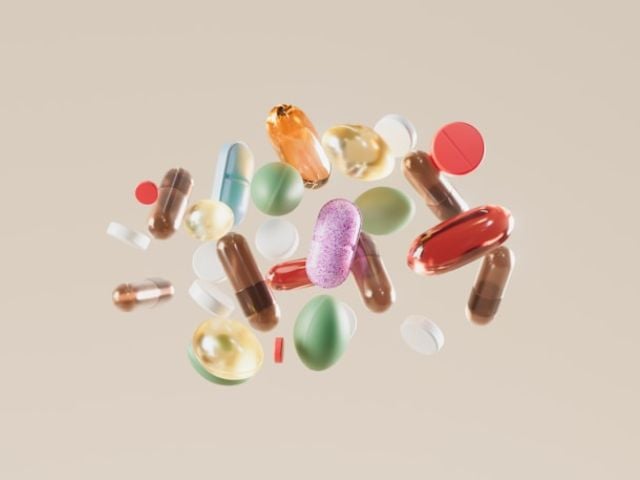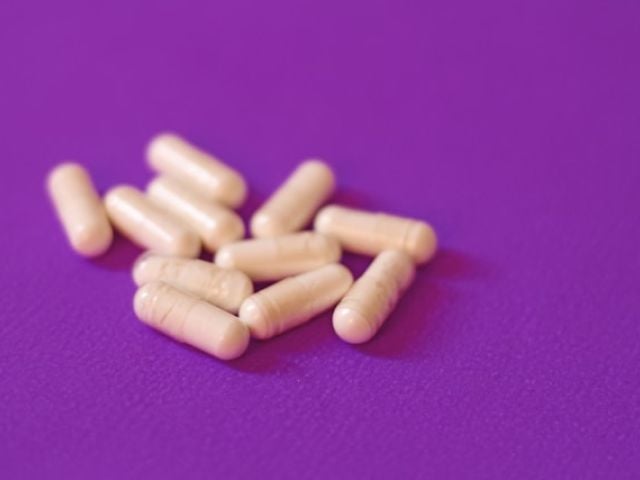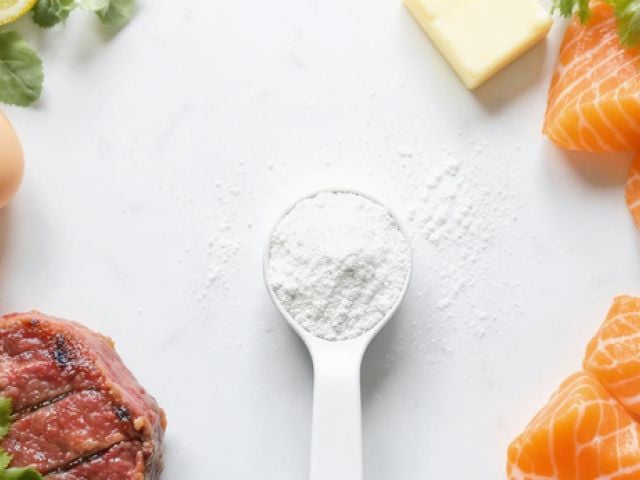
NAD Boosters: What Works and What Doesn’t
Millions of people hunt for the perfect anti-aging supplement. NAD boosters promise to turn back the clock on cellular aging.
But do these products actually work?
The answer isn’t black and white. Some NAD boosters can raise blood levels of this vital coenzyme. Whether those increases translate to real health benefits is another story.
Key Takeaways
- NAD boosters are supplements that increase levels of nicotinamide adenine dinucleotide (NAD+) in the body
- Individual responses to these compounds vary a lot, so baseline testing is crucial for personalized dosing and tracking real progress
- Studies show NAD boosters can improve exercise performance, heart health markers, and may support DNA repair and fertility
- Results tend to happen over 6-12 weeks with consistent use and some populations will see more results than others
Understanding NAD and Its Role in Your Body
Every cell needs nicotinamide adenine dinucleotide (NAD+) to survive. This coenzyme powers over 500 different cellular activities.
NAD+ fuels your mitochondria. It helps turn food into energy and supports DNA repair throughout your body.
Your NAD levels decline with age. Research shows levels can fall by about 50% between ages 40 and 601.
This decline might contribute to many signs of aging. Scientists think restoring youthful NAD levels could slow down aging and boost health.
“The challenge with NAD+ supplementation is that individual responses vary dramatically,” says Dr. Jin-Xiong She, founder of Jinfiniti Precision Medicine. “What works optimally for one person may be ineffective or even excessive for another, which is why we emphasize testing first.”
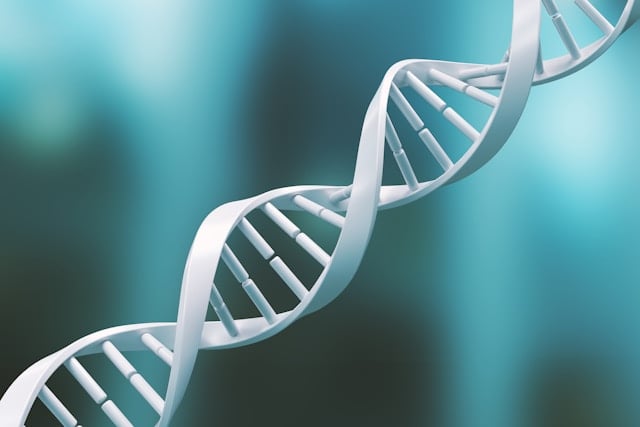
The Science Behind NAD Decline
Age-related NAD depletion hits multiple body systems. Lower levels hurt mitochondrial function and reduce your cells’ ability to fix damaged DNA2.
NAD also feeds sirtuins. These “longevity proteins” control cellular aging and metabolism.
Studies in mice show that falling NAD contributes to aging signs3:
- Muscle weakness
- Mental decline
- Metabolic problems
- Reduced energy production
Types of NAD Booster Supplements
The supplement market offers several precursor compounds that boost NAD levels. Each precursor works through different pathways in your body.
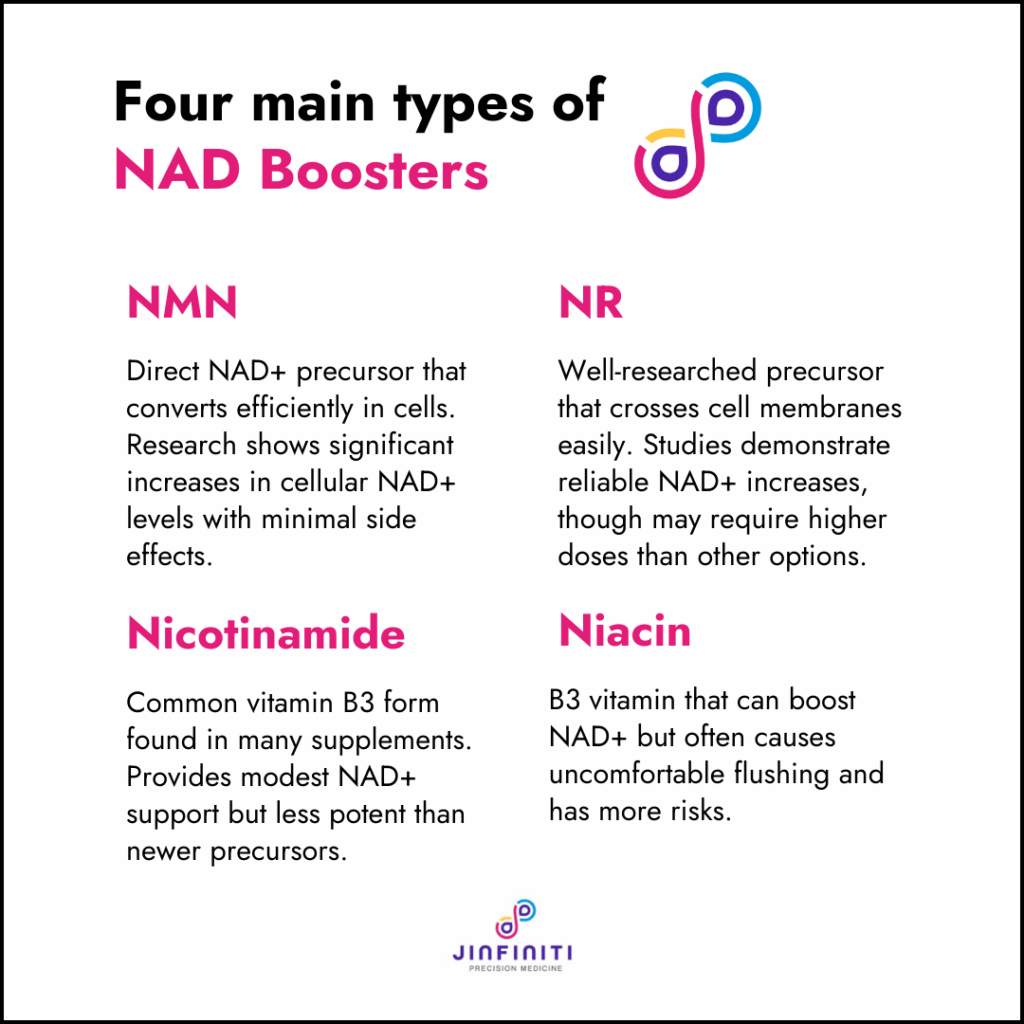
Nicotinamide Riboside (NR)
NR is the most studied NAD booster today. The FDA gave it Generally Recognized as Safe (GRAS) status.
Clinical trials show NR can increase blood NAD+ levels by 40-270%4. The increase depends on dose and individual factors.
Most studies use 300-1000mg daily. Higher doses don’t always work better.
NR shows good safety in healthy adults. Side effects are usually mild:
- Occasional fatigue
- Mild nausea
- Temporary headaches
Nicotinamide Mononucleotide (NMN)
NMN became popular when famous researchers started taking it publicly. This molecule showed promise in early trials.
Some findings suggest NMN might better exercise endurance, improve sleep, and increase cellular energy5. Studies continue, looking into its promise for supporting healthy aging and metabolism.
NMN’s mechanism involves its direct conversion to NAD+ inside cells, making it an efficient precursor. Researchers such as Dr. David Sinclair and Dr. Jin-Xiong She judge it to be one of the most promising compounds for getting NAD+ to optimal levels.
Traditional Vitamin B3 Forms
Niacin and niacinamide are other popular approaches to NAD boosting. These vitamin B3 forms have long safety records.
But they can’t meaningfully raise NAD levels in healthy adults at safe dosages. Niacin also causes uncomfortable flushing at therapeutic doses.
Research shows niacin carries liver toxicity risks at high doses6. Most people can’t tolerate the amounts needed for NAD boosting.
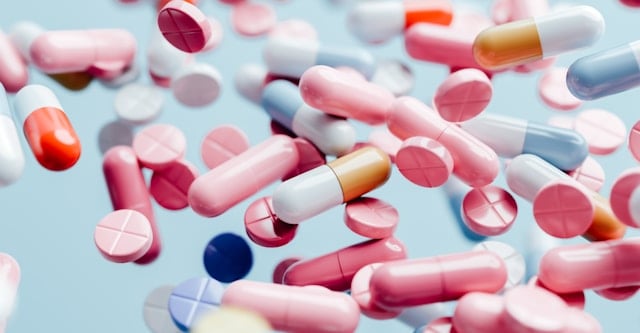
Benefits of NAD Boosters That Really Work
Despite mixed results, certain benefits show consistent evidence. These effects are the most reliable outcomes you can expect.
Increased Blood NAD Levels
The most consistent finding is elevated blood NAD+ levels. Both NR and NMN reliably achieve this change.
Studies show effects typically plateau around 1000mg daily for NR7. Higher doses don’t produce bigger increases.
But higher blood levels don’t guarantee better tissue penetration. The link between blood NAD and cellular benefits remains unclear.
Cardiovascular and Exercise Performance Benefits
NAD boosters show promising results for heart health and physical performance. Benefits appear strongest in middle-aged adults.
A randomized study of 90 people with peripheral artery disease8 found impressive results:
| Measurement | Improvement |
|---|---|
| 6-minute walk distance | 17.6 meters vs placebo |
| High adherence group | Over 30 meters |
| Blood pressure | Reduced |
| Arterial stiffness | Decreased |
Research also suggests NAD+ supplementation may help protect against vascular problems and metabolic issues9.
Limited Anti-Inflammatory Effects
NR supplementation can reduce certain inflammatory markers in older adults. Some studies show 50-70% reductions in inflammatory proteins like IL-610.
These anti-inflammatory effects might contribute to other health benefits. Chronic inflammation plays a role in many age-related diseases and can contribute to premature aging.
But these findings need testing in larger, more diverse groups before we can draw firm conclusions.
DNA Repair and Cellular Protection
NAD+ supports DNA repair mechanisms throughout your body. NAD+ feeds poly(ADP-ribose) polymerases (PARPs) and sirtuins.
These proteins are important for DNA damage response and cell survival.
This function becomes more important with age. DNA damage builds up and cellular repair capacity declines.
Research shows that NAD+ supplementation can partially restore DNA repair capacity in cells with damaged repair systems11.
In animal studies, NR supplementation dramatically improved genomic stability and extended lifespan.
Fertility and Reproductive Health Benefits
New research reveals promising uses for NAD+ boosters in reproductive health. Declining NAD+ levels contribute to age-related fertility decline.
Studies show NMN supplementation can rejuvenate egg quality and quantity in aged animals12. This led to improved fertility outcomes.
NAD+ and fertility research suggests potential benefits for both male and female reproductive health.
Key findings include:
- Improved egg quality in aging
- Better sperm function
- Potential fertility preservation during cancer treatment
- Enhanced reproductive lifespan
Immune System Enhancement
NAD+ plays an important role in immune function and regulation. NAD+ boosting shows anti-inflammatory effects and can help balance immune responses.
Studies show NR supplementation reduces inflammatory chemicals like IL-613. The immune benefits may extend to autoimmune conditions.
Research suggests NAD+ boosting may work best in people with higher inflammation14. This includes elderly individuals or those with chronic diseases.
Where NAD Boosters Need More Research
Many popular claims about NAD supplementation lack strong clinical support. Understanding these limits helps set realistic expectations.
Metabolic Health and Weight Management
Results for metabolic benefits show mixed outcomes across different studies. Some trials show metabolic improvements while others find minimal effects.
A detailed review of clinical trials15 found mixed results:
| Measurement | Result |
|---|---|
| Total cholesterol | Reduced |
| Triglycerides | Reduced |
| Insulin sensitivity | Variable |
| Body composition | No change |
A 12-week trial in obese men taking 2000mg daily of NR showed no improvements in insulin sensitivity or body composition16.
The differences in results may relate to individual factors. Baseline NAD+ status, inflammation levels, and metabolic health all matter.
Cognitive Enhancement Claims
Human trials for cognitive benefits show mixed results. Completed human studies haven’t shown dramatic cognitive improvements.
Animal studies show NAD+ supplementation can reduce brain inflammation and support brain cell energy17. In Alzheimer’s models, NAD+ boosting improved stress response and reduced brain disruption18.
The gap between animal studies and human trials remains large for cognitive benefits. More human research is needed to see if these brain-protective effects translate to real cognitive improvements.
Mitochondrial Function Improvements
Results for mitochondrial function show mixed outcomes in human studies. Some research suggests improvements in mitochondrial health markers19.
But analyses of muscle biopsies from studies show minimal changes10.
The relationship between increased blood NAD levels and improved mitochondrial function in tissues remains unclear:
- Some people experience better cellular energy
- Others show little change
- Blood biomarkers don’t always match tissue improvements
- Individual responses vary widely
Safety Concerns You Should Know About

Recent research has uncovered potential risks that challenge assumptions about NAD booster safety. The overall safety profile remains generally good in short-term studies.
Clinical Safety Profile
A study involving 489 participants showed NAD+ supplementation is generally well-tolerated20. Only mild side effects occur.
Common side effects include:
- Muscle pain
- Fatigue
- Headaches
No serious adverse events have been reported in clinical trials. Research shows clinical safety at doses up to 900mg daily for most NAD+ precursors.
Quality Control Problems
Independent testing reveals some quality issues with commercial NAD supplements. One white paper apparently shows 87% of NR products fail to meet their label claims21.
Quality control problems include:
- Much less active ingredient than advertised
- Contamination with unwanted substances
- Complete mislabeling of contents
- No pre-market safety testing required
Unlike prescription medications, dietary supplements require no safety testing before sale. Quality control remains largely voluntary.
Drug Interactions and Side Effects of NAD
Certain NAD combinations pose interaction risks with common medications. Resveratrol, often paired with NR, blocks liver enzymes that break down drugs.
This can affect:
- Blood thinners
- Diabetes medications
- Many other prescriptions
Research shows niacin carries the highest interaction risk22.
People with cancer history, autoimmune conditions, or inflammatory diseases should use extra caution. The immune system’s high energy demands during inflammation could be problematically increased.
How to Get NAD Benefits Safely
If you’re considering NAD supplementation, a thoughtful approach maximizes potential benefits while minimizing risks.
Testing Your Current NAD Status
Before starting any supplement, understanding your baseline NAD levels provides valuable guidance. Individually testing NAD levels can reveal whether you’re likely to benefit from supplementation.
“Too many people start supplementing blindly without knowing their baseline status,” explains Dr. Jin-Xiong She. “Testing allows us to personalize dosing and track real improvements instead of guessing.”
The Intracellular NAD+ Test measures your cellular NAD levels through a simple finger-prick blood collection. This clinical-grade testing helps determine the right dosage.
Testing also lets you monitor your response to supplementation. You can measure improvement and adjust doses based on actual results rather than guessing.
| Testing Benefits | Clinical Value |
|---|---|
| Baseline measurement | Identifies deficiency |
| Personalized dosing | Improves effectiveness |
| Progress monitoring | Tracks improvement |
| Safety assessment | Prevents overdosing |
Choosing Quality NAD Booster Products
Given the quality control crisis in the supplement industry, selecting third-party tested products becomes important. Look for supplements that provide certificates of analysis.
Vitality↑® NAD+ Booster combines multiple NAD precursors in a clinically validated formula. The powder format allows for precise dosing based on your individual needs.
The formulation includes:
- NMN
- Creatine monohydrate
- D-ribose
- Niacinamide
These ingredients work together across multiple metabolic pathways in ratios designed for maximum effectiveness.
NAD IV Therapy Considerations
Some people explore NAD IV therapy as an alternative to oral supplements. This approach delivers NAD directly into your bloodstream.
NAD IV therapy claims to achieve higher blood levels more rapidly than oral supplements. Sessions typically last 2-4 hours and require medical supervision.
But IV therapy costs much more than oral supplements. Most insurance plans don’t cover these treatments.
Side effects of NAD IV can include chest tightness, nausea, and fatigue during infusion. The long-term safety profile remains unclear and most studies on NAD have been done with NMN or NR.
Natural Ways to Boost NAD Production

Your lifestyle choices significantly impact NAD levels in the body. These approaches offer safer alternatives to supplementation.
Exercise and Physical Activity
Regular exercise naturally increases NAD production through multiple pathways. Research on NAD for athletic performance shows that both cardio and resistance training support cellular NAD levels.
Exercise activates enzymes that help boost NAD production. It also improves mitochondrial function independently of supplementation.
The food you eat also influences NAD production. Certain foods contain NAD precursors or compounds that support NAD creation.
Sleep and Stress Management
Quality sleep and stress reduction support healthy NAD levels naturally. Poor sleep and chronic stress deplete NAD through inflammatory pathways.
NAD and sleep quality show two-way relationships. Better NAD status may improve sleep while good sleep supports NAD production.
Meditation, yoga, and other stress-reduction techniques help preserve NAD levels. These approaches offer additional health benefits beyond NAD improvement.
Setting Realistic Expectations for NAD Boosters
NAD boosters can work, but the effects are more limited than marketing suggests. Understanding what to expect helps you make informed decisions.
Who May Benefit from NAD Supplementation
Certain groups show greater responses to NAD boosters:
- Older adults with documented NAD deficiency
- People with higher inflammation or metabolic problems
- Those with specific health conditions
People with great health typically show minimal improvements. Individual genetic factors influence NAD metabolism. Some people naturally maintain higher levels and gain less from supplementation.
Realistic Timeline for Results
Most studies showing benefits use supplementation periods of 6-12 weeks. Don’t expect immediate dramatic changes from NAD boosters.
Energy improvements, if they occur, typically develop gradually over several weeks. Exercise performance gains follow a similar timeline.
“The science shows us that NAD+ optimization is a process, not a quick fix,” notes Dr. Jin-Xiong She. “Patients who understand this timeline and monitor their progress objectively tend to achieve the best long-term results.”
Monitor your response objectively rather than relying on feelings alone. Consider retesting NAD levels after 6-8 weeks of consistent supplementation.

Making an Informed Decision About NAD Boosters
The evidence for NAD boosters reveals modest benefits, significant limitations, and emerging safety concerns.
When NAD Supplementation Makes Sense
Consider NAD boosters if you have documented deficiency through proper testing. Older adults with high inflammation or specific health conditions may see greater benefits.
Always talk with healthcare providers familiar with current research. This becomes particularly important if you have cancer history or take multiple medications.
Complementary Approaches to Consider
Lifestyle changes can amplify the benefits you get from NAD supplementation. Regular exercise, adequate sleep, stress management, and balanced nutrition work together with NAD boosters to support increased energy and healthy aging.
Other longevity supplements may complement your NAD optimization strategy. Consider a comprehensive approach that combines multiple evidence-based interventions for maximum benefit.
Bottom Line on NAD Boosters
NAD boosters are a emerging field in healthy aging. Some products can increase blood NAD levels but the translation of that to meaningful health benefits varies between people.
The evidence shows real benefits in specific areas like heart health, exercise performance and inflammation reduction. DNA repair and potential fertility benefits are added to the growing list of uses.
But more research is needed to understand optimal dosing, ideal candidates and long term safety. Individual responses are very different.
For most people looking for energy or longevity benefits a combined approach is best. Lifestyle changes like exercise, proper nutrition, adequate sleep and stress management provide proven benefits that complement any supplementation strategy.
If you choose to try NAD boosters start with proper testing to establish your baseline. Work with healthcare providers who understand the current research and can monitor your response.
Referenced Sources
- https://pmc.ncbi.nlm.nih.gov/articles/PMC7442590/ ↩︎
- https://pmc.ncbi.nlm.nih.gov/articles/PMC9512238/ ↩︎
- https://pmc.ncbi.nlm.nih.gov/articles/PMC5419884/ ↩︎
- https://www.nature.com/articles/s42255-019-0161-5 ↩︎
- https://pmc.ncbi.nlm.nih.gov/articles/PMC10721522/ ↩︎
- https://www.ncbi.nlm.nih.gov/books/NBK548176/ ↩︎
- https://www.mdpi.com/2076-3921/11/9/1637 ↩︎
- https://www.nature.com/articles/s41467-024-49092-5 ↩︎
- https://www.sciencedirect.com/science/article/pii/S2667089524000142 ↩︎
- https://journals.physiology.org/doi/pdf/10.1152/ajpendo.00242.2023 ↩︎
- https://www.tandfonline.com/doi/full/10.1080/15384101.2017.1285631 ↩︎
- https://pmc.ncbi.nlm.nih.gov/articles/PMC7063679/ ↩︎
- https://pmc.ncbi.nlm.nih.gov/articles/PMC9571518/ ↩︎
- https://pmc.ncbi.nlm.nih.gov/articles/PMC10346866/ ↩︎
- https://pubmed.ncbi.nlm.nih.gov/35303905/ ↩︎
- https://pmc.ncbi.nlm.nih.gov/articles/PMC10828186/ ↩︎
- https://pmc.ncbi.nlm.nih.gov/articles/PMC11877801/ ↩︎
- https://pmc.ncbi.nlm.nih.gov/articles/PMC11470026/ ↩︎
- https://pmc.ncbi.nlm.nih.gov/articles/PMC4076149/ ↩︎
- https://pubmed.ncbi.nlm.nih.gov/37971292/ ↩︎
- https://www.nutraingredients-usa.com/Article/2025/02/28/majority-of-nr-dietary-supplements-tested-by-chromadex-failing-to-meet-label-claims/ ↩︎
- https://www.sciencedirect.com/science/article/pii/S0006291X24001256 ↩︎





